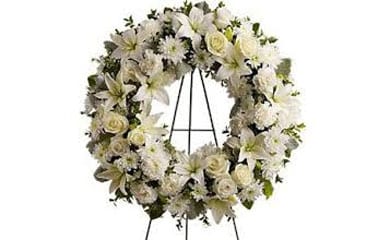
What is the worst thing that can happen in the workplace? You get overlooked for a promotion? You work hard for no reward? You miss the submission date of a big tender? These all seem like huge ordeals when we are faced with them, but there are much worse things that can happen.
No, the worst thing that can happen at work is when a co-worker loses their life. This happened to a friend’s colleague last week. The man who died was a quiet, friendly and relatively introverted person who went home at lunchtime with flu-like symptoms and then died six hours later of a heart attack. He was only 42 years old, and the news has hit the workplace heavily.
A sense of perspective
When we are faced with news like this and we are reminded of how precious life is, we tend to go through a fairly standard set of responses. Shock and sadness are the initial reactions, but once that sets in we start to introspect. Are we living our lives to the fullest? Are we being nice enough to each other? Are we getting stressed out, panicked and political with each other unnecessarily?
Looking after your team and those around you
This situation really tests the leadership of the organisation. It is harrowing and painful for many employees, and the ways that people mourn and express sadness and shock vary wildly. The organisation and leaders need to find a way to care for those who need it.
It isn’t only those closest to the deceased that are affected badly. Often, people who repress stress and issues in their own life will release to an unexpected degree when something like this happens. As managers and friends we need to realise this – it is very hard to predict how everyone will respond.
Addressing the issues
When someone leaves the organisation suddenly under any circumstances there are usually some fairly well-established guidelines for what to do, especially if someone is dismissed. But when the departure is due to someone’s death, the emotion tends to create a lot of uncertainty.
If you are in a position of leadership you must hold a meeting as early as possible to deliver the news to the group. It may be that prior to this you establish with the family of the deceased what is OK to say and what is not. At the same time you have to outline what people are supposed to do if they are struggling to cope. Make sure you explicitly state that they can have some time off, what their entitlements are around bereavement leave (if it’s offered) and whether the company will be offering counselling.
If there is a member of the team that is particularly close to the deceased then it is prudent to take them aside and tell them privately.
When a group of people are in shock, as they come to terms with some unpleasant news, they usually have a lot of questions buzzing. Some will seem insignificant and irrational, but it is all part of dealing with the shock.
After you deliver the news of the death, including whichever details are relevant (often the first question is “how did it happen?”) and also any arrangements around the funeral, it is important to outline the shifting of responsibilities that will occur.
The full list of tasks and responsibilities should be assessed by the manager and given to members of the team best equipped to take them on. The manager should also take the responsibility of informing any clients, agencies or stakeholders that the person dealt with on a consistent basis.
It is easy to forget these things in the midst of emotional chaos, but when this is all delivered properly you provide a point of stability and certain for those around you.
It shouldn’t take a death for us to…
You can probably finish this sentence many ways, but nearly all of them will involve being civil, kind, friendly and helpful to everyone around you. It shouldn’t take a death for us to be more human to each other. We are social creatures and we rely heavily on each other in lots of ways that we can’t imagine until an element of that support is missing.
Show your appreciation for those around you. Life is precious and far too short.


